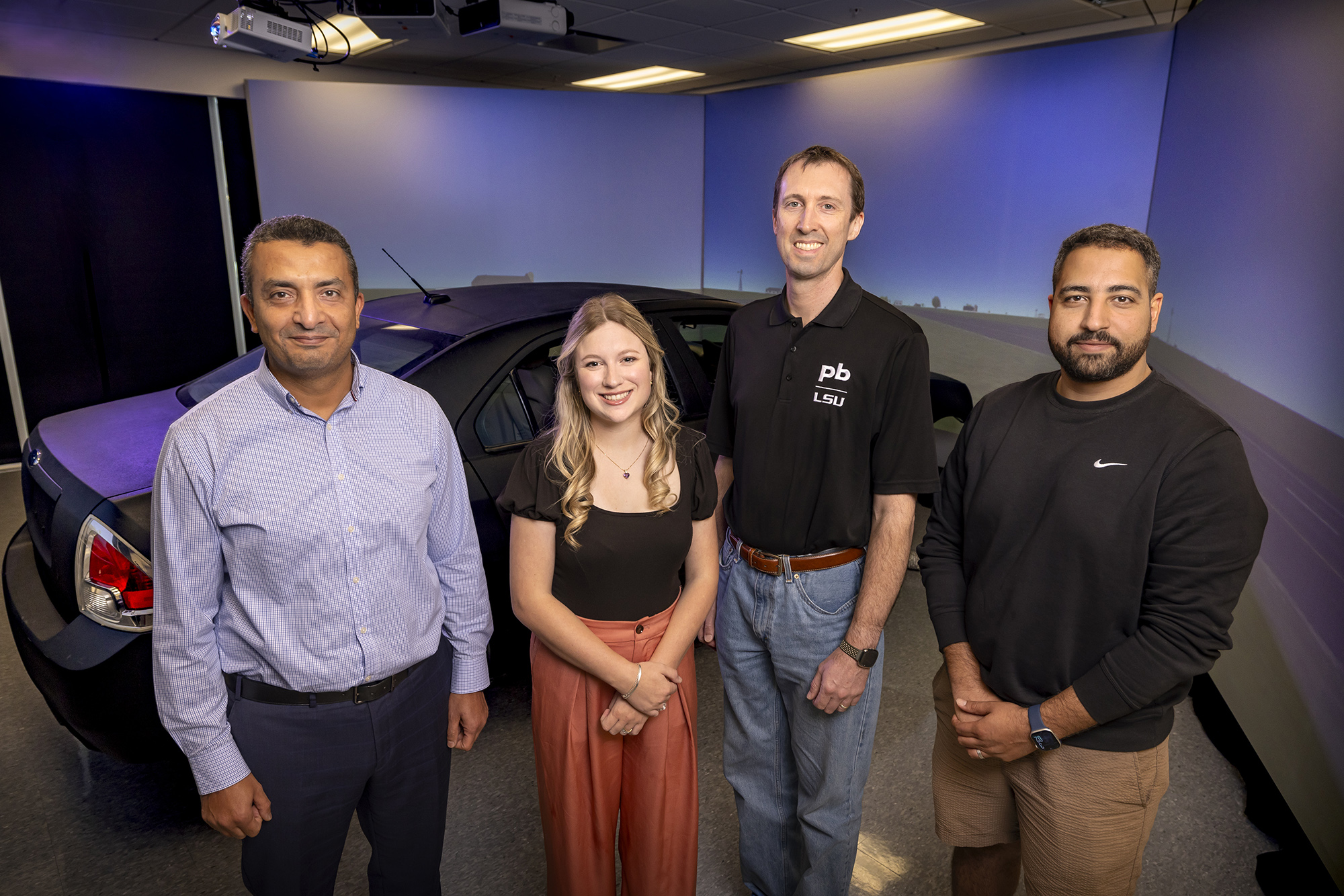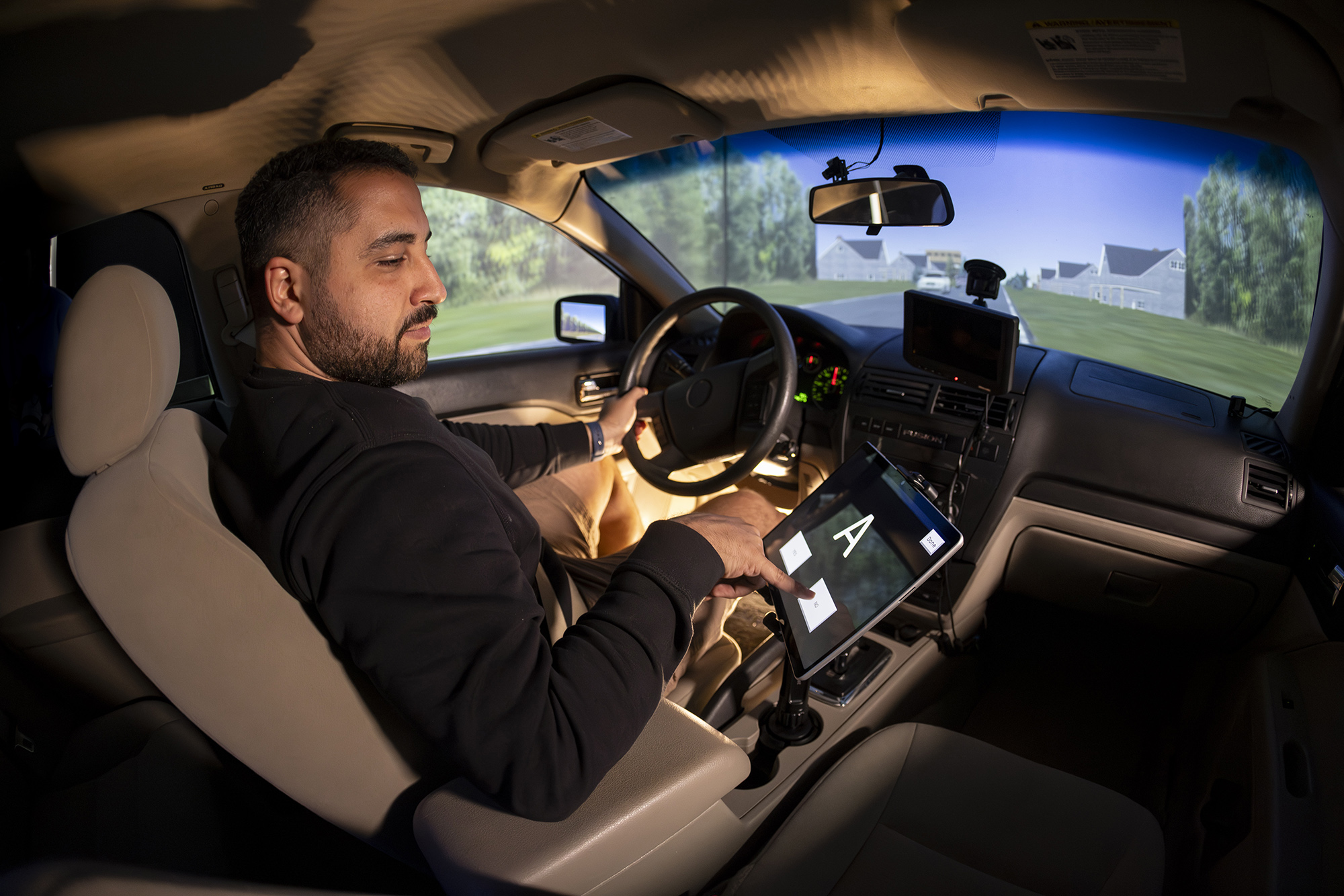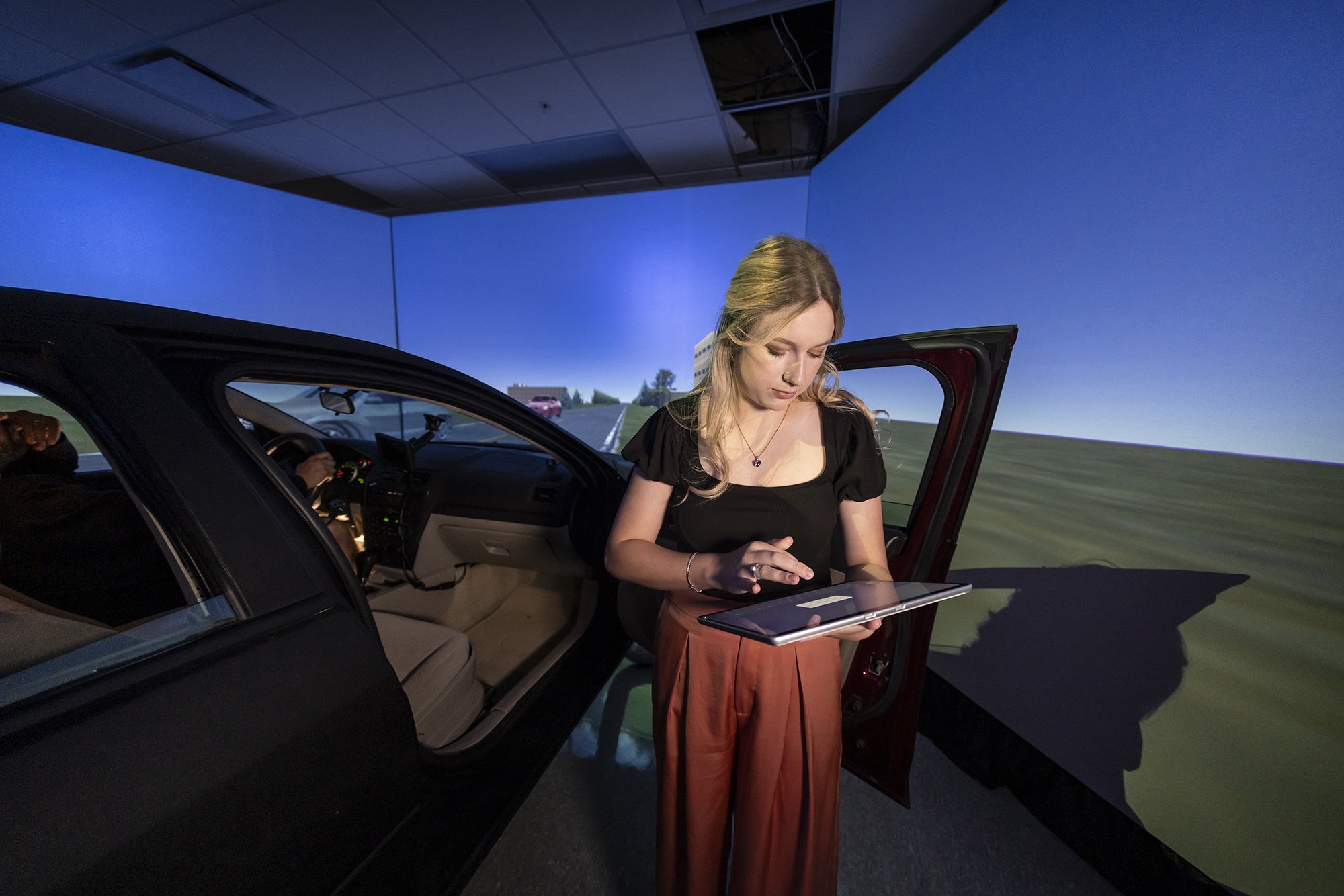Driving Solutions: LSU Undergraduate Studies Dangers of Multitasking Behind the Wheel
December 12, 2024
Texting while driving increases the risk of a vehicle crash by 23 times. In this always-connected world, the temptation to check a notification or send a quick text while driving constitutes an ever-present danger.
At LSU, forensic psychology major Hannah Hauck is working to find solutions to this problem through research that blends psychology, engineering, and cutting-edge technology.
“Distracted driving is so prominent today with the age of cell phones. The statistics behind it are jarring, and this research can help reduce crashes and save lives,” Hauck said.
Hauck, a senior from Laplace and a first-generation college student, is taking a closer look at the science of multitasking, with a specific focus on its impact on driving performance. Using LSU’s advanced driving simulation lab in the LSU College of Engineering’s Patrick F. Taylor Hall, she’s studying how well people can perform behind the wheel when they’re also completing a secondary task, such as texting.
What sets her work apart is its interdisciplinary approach. With the support of Hany Hassan, an assistant professor in transportation engineering, and Owen Carmichael, director of biomedical imaging at Pennington Biomedical Research Center, her project brings together expertise from across LSU’s academic landscape.
Hauck, an LSU Ogden Honors College student, received a grant from the Tiger Athletic Foundation, or TAF, Scholarship for Honors Capstone to buy supplies and research-specific items that enhanced the simulator environment for her project. The TAF Scholarship for Honors Capstone provides up to $500 to support students with expenses related to research, production, or other critical aspects of capstone preparation.
The scholarship enables students to focus entirely on their academic and intellectual endeavors by easing financial burdens that might otherwise necessitate non-academic employment. This funding reflects TAF’s dedication to fostering academic excellence and empowering students to achieve their goals with greater freedom and support.

From left: Hany Hassan, assistant professor, Department of Civil and Environmental Engineering; Hannah Hauck, LSU forensics psychology senior; Owen Carmichael, professor and director of Biomedical Imaging, Pennington Biomedical Research Center; Mohamed Mohamed, Civil & Environmental Engineering PhD candidate.


“LSU has been great in allowing me to collaborate across disciplines,” Hauck said. “I’m a psychology major, but I’ve been able to work with faculty in engineering and biomedical sciences to make this research happen.”
Hassan also welcomes the chance to collaborate.
“I think the collaboration between different disciplines and the different departments is great because it will increase or provide more valuable insight from different perspectives. I encourage collaboration, and I think it's great to see research between different departments,” he said.
“It’s rewarding to see LSU enabling undergraduates to use these facilities, gain insights from multiple disciplines, and solve real-world problems.”
Hany Hassan, assistant professor in transportation engineering
Hassan, who manages the driving simulation lab, describes it as a resource designed to understand driver behavior and improve road safety. Typically used by graduate students, the lab provides a rare opportunity for undergraduates like Hauck to gain hands-on research experience.
“This is the third time I’ve worked with an undergraduate student on a project like this,” Hassan said. “It’s rewarding to see LSU enabling undergraduates to use these facilities, gain insights from multiple disciplines, and solve real-world problems.”
The research process begins by having participants complete tasks individually — driving in the simulator on its own, and then performing a computational task designed to mimic texting. Finally, the two tasks are combined to measure how multitasking affects driving performance. Hauck said the results will provide valuable insights. The experience, she said, has been transformative.
“The most rewarding part has been working with incredible mentors and doing ambitious research as an undergraduate,” she said. “Not many universities offer students the chance to collaborate on this scale and use facilities like the driving simulator.”
Projects like this help students discover their passions and future career paths.
“Undergraduate research is often about helping students figure out where they fit in the world,” Carmichael said. “For many, it’s their first opportunity to see themselves as problem-solvers making an impact.”
Hauck is a candidate for the LSU Distinguished Undergraduate Researcher Program. Recipients demonstrate an outstanding ability as advanced student researchers in their discipline and are honored at a special medal ceremony. As she prepares to graduate with hopes of attending medical school, she said she is proud of the work she’s done to advance distracted driving research at LSU.
“Driving is something most of us do every day,” she said. “The more we understand how distractions affect us, the safer we can make our roads.”
Next Steps
Let LSU put you on a path to success! With 330+ undergraduate programs, 70 master's programs, and over 50 doctoral programs, we have a degree for you.


